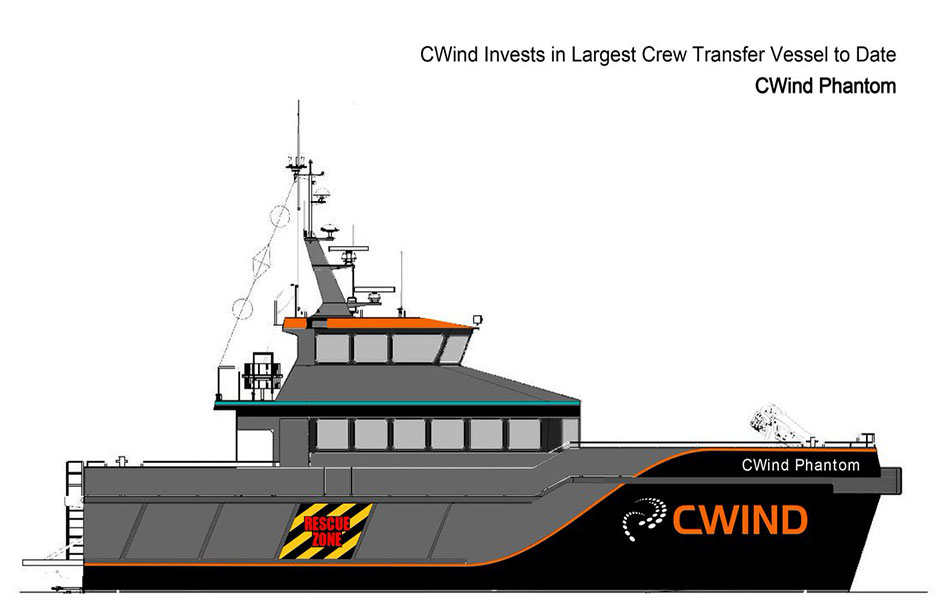Contact Us
Thursday 16th February 2017

CWind, a leading provider of services to the offshore wind industry, announced today that it has invested in the Company’s largest crew transfer vessel to date. Newly named as CWind Phantom, the 27.4m catamaran can hold 20,000 litres of fuel and has a 20-ton cargo capacity, making her suitable for longer stretches of work at wind farms located further from shore. This investment demonstrates the Company’s ability to evolve with the changing market. CWind’s fleet now totals 18.
“Our experience on the world’s largest offshore wind farms has helped us build a diverse range of vessels that meet the changing needs of our valued clients,” said Lee Andrews, Managing Director for Power at CWind. “Transporting technicians quickly, safely and comfortably to and from sites, even in tough weather conditions, is critical to offshore project performance. The CWind Phantom is designed to exhibit reliability, superior fuel efficiency, high transfer height during operations and a large, flexible payload capability, all crucial specifications for the harsh conditions far from shore. Highly seaworthy and with impressive seakeeping ability, the CWind Phantom is also extremely manoeuvrable for a vessel of her size, with a proven and reliable propulsion combination.”
Built in 2015, the CWind Phantom can carry up to 12 passengers, with berths for eight people. The accommodation is fully air-conditioned and heated and offers all the amenities required to remain at sea for extended periods, including a dedicated meeting space.
Featuring an aluminium hull with 8m beam width and 1.4m draft, CWind Phantom can carry containers in a combination of configurations, while an on board crane can lift 1.1 tons at 5m outreach. The jet-driven vessel is powered by two MAN D2862 main engines and is capable of reaching a maximum speed of 27kn.
CWind took ownership of the vessel on 1st February. Following a mini-refit, the CWind Phantom will be available to start work on 1st March and already has significant client interest.
Mr Andrews concluded, “There is currently significant demand for vessels with the ability to work further offshore and we are already seeing client interest in the CWind Phantom. Ultimately, this investment enables us to provide a more integrated offering for both the construction and operations and maintenance phases of an offshore wind farm project.”